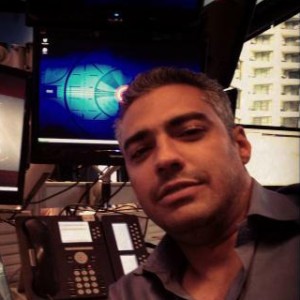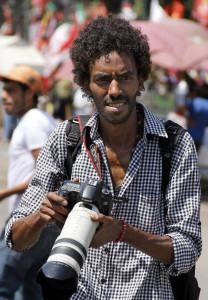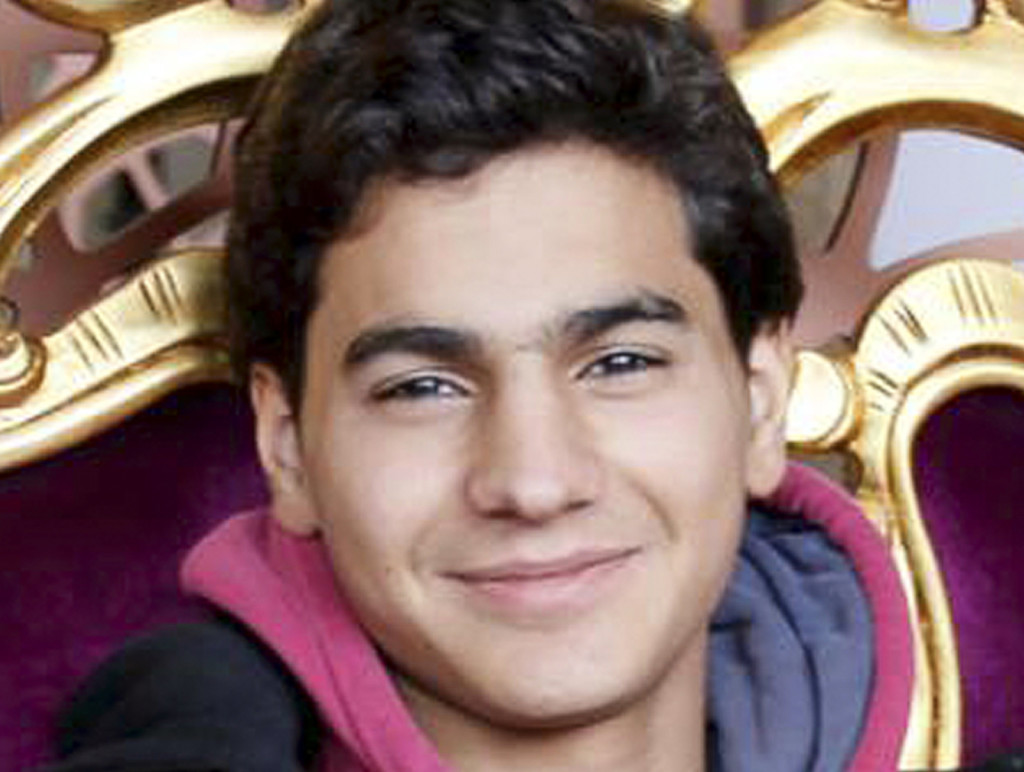
Syrian activist and photographer Molhem Barakat, who has died while covering the country’s conflict, is seen at an undisclosed location.
We received sad news from Syria during the holiday season: Molhem Barakat, a young Syrian photographer who freelanced for Reuters and whose iconic photos appeared in many global publications, was killed a few days ago in the line of duty. Believed to be no older than 19–possibly as young as 17–years old, Baraka was shot dead on Friday, December 20, as he photographed a battle between rebels and regime forces over a hospital which rebels said the government had turned into military barracks.
Barakat is the latest of dozens of journalists, reporters, photographers and videographers killed in 2013 while trying to bring the news of the Syria conflict to the world’s attention. As listed by Reporters Without Borders and the Committee to Protect Journalists (CPJ), they include:
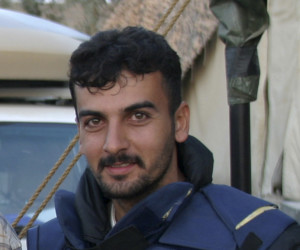
Iraqi freelance cameraman Yasser Faysal al-Joumaili/REUTERS
Yasser Faysal Al-Joumaili,a freelance Iraqi cameraman, killed execution- style December 4, 2013, by members of the jihadist group Islamic State of Iraq and the Levant.
“Joumaili is the first foreign journalist to be murdered by an armed opposition group in northern Syria’s so-called ‘liberated’ areas,” Reporters Without Borders said.
Mohamed Yamen Naddaf, a cameraman with the opposition news agency Shahba Press, was shot by a sniper November 24, 2013 while covering clashes between the Syrian army and the rebels in the Al-Sheik Saied neighborhood of Aleppo. Shahba Press editor-in-chief Ma’moun Abu Amr told CPJ that Naddaf, who was accompanying the rebels, was killed instantly.
Mohamed Ahmed Taysir Bellou, a cameraman with Shahba Press and editor of opposition station Shahba TV, was shot by a sniper while he was covering clashes in the Lairmoon district of Aleppo.

Mohammad Saeed was killed by a hooded man using a silenced gun in the Aleppo village of Hreitan.
Mohamed Saeed, a correspondent for the Dubai-based Al-Arabiya News Channel, killed October 29, 2013. Nabeel Alkhatib, Al-Alarabiya Executive Editor, told RePRESSed that it is believed that Al-Qaida-linked assasins shot Saeed while he was having a haircut in his home town. Other reports say Saeed was killed by a hooded man using a silencer on his gun in the Aleppo village of Hreitan. A native of Aleppo, Saeed earned his bachelor degree from Aleppo University and subsequently worked with a variety of media outlets preparing news stories and video reports.
Nour al-Din Al-Hafiri, a freelance videographer and citizen journalist, al-Hafri died from injuries he received on September 27, 2013, while covering clashes in a western suburb of Damascus, according to local activists and news reports. The media office of the Syrian Revolution Command Council in Damascus Suburbs (SRCC) where al-Hafiri worked told CPJ that he was hit by shrapnel from a tank shell while filming clashes in the town in Al-Bahariyah. Al-Hafri died two days later, September 29, 2013, in Al-Bahariyah, Syria.

In one of the last photos taken by freelance photographer Molhem Barakat, Hasan, an 11 year-old fighter from the Free Syrian Army distributes tea to his fellow fighters in Aleppo’s Karm al-Jabal district December 7, 2013. Barakat was only a few years older than the boys pictured. REUTERS/Molhem Barakat
Abdel Aziz Mahmoud Hasoun, Masar Press, September 5, 2013, in Jobar, Damascus, Syria. Hasoun, also known as Qusay Al-Shami, was a correspondent for the opposition news agency Masar Press. He was killed by a tank shell while covering clashes between rebel and regime forces in the Damascus suburb of Jobar, Masar Press and local human rights groups reported. The Syrian Journalists Association reported that before joining Masar Press, Hasoun had documented the uprising as a citizen journalist. Under his pseudonym Qusay al-Shami,
Muhammad Hassan Al-Musalama, citizen journalist with the Revolutionaries of Daraa Al-Muhata,Tariq Al-Sadd, died August 20, 2013, in Daraa, Syria. Al-Musalama was killed while filming clashes in the southern Syrian town of Daraa, according to the Syrian Journalists Association and local news reports. Abo Kasem, a fellow member of the Revolutionaries, told CPJ that al-Musalama filmed local events and clashes in the city for the group’s Facebook page and YouTube channel.
Shahir al-Muaddamani, former director of the media office of the Local Council of Daraya City media office, was killed August 16, 2013 by a shell while on his way to cover clashes in Daraya, a suburb of Damascus, according to news reports and Mohanad Abu al-Zein, the current media director.
Muhammed Tariq Jadua, a videographer for the Jisr Al-Shaghur Multimedia Network (JMN), was killed on July 27, 2013, while covering clashes between Syrian rebels and government forces, according to news reports and his colleagues. JMN staff told CPJ that Jadua was filming mortar fire by the Artillery of Islam Battalion, an independent rebel unit in Syria, on a regime checkpoint. Habib al-Jisry, a member of the battalion’s media office who was with Jadua when he died, told CPJ that they were both filming the battle when a shell fired by a regime T-72 tank exploded near them.
Fidaa al-Baali, a 20-year-old citizen journalist and activist, died of shrapnel wounds he sustained from government shelling of Qaboun district in Damascus in early June, according to news reports.The journalist was hospitalized for several weeks in a coma before he died on July 5, 2013. Al-Baali, who was also popularly known as “Mohamed Moaz,” began filming and documenting the conflict in Syria when the uprising began in March 2011, The New York Times reported.
Hadi Baghbani, an Iranian documentary filmmaker working for IRTVU,was killed on August 20, along with his film crew, while filming alongside Syrian government forces.
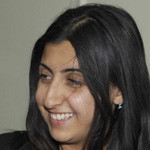
Yara Abbas, a reporter for the al-Ikhbariya news channel, is seen in this undated handout photo distributed to Reuters by Syria’s national news agency SANA on May 27, 2013.
Yara Abbas, a prominent war correspondent for Syria’s Al-Ikhbariya TV, died May 27, 2013 near the military air base of Dabaa in the central province of Homs. Dabaa air base is located near Qusair, which at the time had been under attack by government forces and members of Lebanon’s Hezbollah group.
Abd Al-Rahim Kour Hassan, also known as “Mohammed al-Ghazali,” was the director of broadcasting for Watan FM. He was killed April 2, 2013. The Syrian government informed Hassan’s family about his death, but did not offer any other details. According to the Committee to Protect Journalists (CPR), he had been arrested in Damascus in January and died while being held at Palestine Branch, a feared prison of Syria’s Military Intelligence Security that is known for the severe abuse of prisoners. The station, local opposition groups, and press freedom groups including the Syrian Journalists Association said he had been tortured to death.
Youssef Younis, freelance journalist, was shot April 24, 2013, in Damascus, Syria, while covering clashes between the rebel Free Syrian Army and government forces in the suburb of Sidi Meqdad, according to opposition news reports and the Beirut-based watchdog the Samir Kassir Foundation (SKeyes). Younis had traveled with the rebel forces to cover an attack against government forces who were occupying several buildings in the neighborhood, the reports said. Younis, 24, who was popularly known as “Abu Mujahid,” was a photographer and videographer who regularly filmed clashes between the rebels and government forces. He had studied economics at Damascus University, but left school in 2011 to cover the Syrian uprising as a citizen journalist.
Amer Diab, a freelance reporter and cameraman, was shot by government forces on March 29, 2013, while covering clashes between the rebel Free Syrian Army and Syrian government forces in the neighborhood of Al-Otaiba, Damascus, according to the Saudi-based news website Al-Sharq and the Syrian Center for Human Rights. Diab, who was known locally as “Abu al-Majid al-Ghoutani,” regularly filmed and reported on clashes in the Damascus suburb of Al-Ghouta al-Sharqiya. He also contributed reporting to the pro-opposition TV channel Orient News and the Free Syrian Army TV channel Suri al-Hur (The Free Syrian) and was the spokesman for the Media Office of Al-Ghouta al-Sharqiya, the Marj Branch, according to the Media Office and Shaam News Network.
Mahmoud Natouf, reporter and videographer for Sana al-Thawra (Syrian Arab News Agency of the Revolution), Moadamyat Al-Sham Media Center. Natouf was killed March 14, 2013, during government shelling of the Damascus suburb of Moadamyat al-Sham, according to his employer and news reports. He was filming government shelling in a residential area near the neighborhood mosque when he was hit by rocket fire, the Moadamyat al-Sham Media Center reported on its Facebook page.The center has published hundreds of videos and reached almost a million views since the establishment of its YouTube channel in September, 2012.
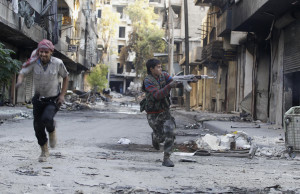
In another iconic photo taken by deceased freelance photographer Molhem Barakat, Mohammad (R), a 13 year-old fighter from the Free Syrian Army, aims his weapon as he runs from snipers loyal to the Syrian regime in Aleppo’s Bustan al-Basha district October 29, 2013. Mohammad joined the Free Syrian Army after his father died during clashes with the Syrian regime. The gun he is using was his father’s. REUTERS/Molhem Barakat
Ghaith Abd al-Jawad documented clashes and protests for the Qaboun Media Center, a group of opposition citizen journalists who film clashes in the neighborhood of Qaboun and publish the unattributed videos online, according to international broadcaster Al-Jazeera and the local press freedom group Syrian Journalists Association. Known locally as “Abu Teem,” al-Jawad was killed with Amr Badir al-Deen Junaid, the head of the Qaboun Media Center on March 10, 2013, by a mortar shell fired by pro-Assad forces in Qaboun, according to Shaam News Network and other reports. The Qaboun Media Center posted a video of a shell landing close to one of its other photographers, who was uninjured, on the same day.
Amr Badir al-Deen Junaid, the head of the Qaboun Media Center and known locally as “Abu Ameer,” was killed with Ghaith Abd al-Jawad (above) by a mortar shell fired by pro-Assad forces in Qaboun on March 10, 2013, according to Shaam News Network and other reports.
Walid Jamil Amira, with the Jobar Media Center, was killed by sniper fire while covering clashes near the Damascus suburb of Abaseen on March 3, 2013, according to Shaam News Network and the local press freedom group Syrian Journalists Association who confirmed the death via email. Several opposition groups said Amira was killed by a pro-Assad sniper, but did not offer further details. Amira, who was known locally as “Abu Omar,” documented clashes and protests for the Jobar Media Center, a group of opposition citizen journalists who film clashes in the neighborhood of Jobar and publish the unattributed videos online, according to the reports. The Jobar Media Center posted a YouTube video that it said was taken on the day Amira died and was the last footage the journalist filmed. In the video, Amira repeatedly says “God is great” as shells explode all around him in Jobar.
Mohamed Saeed al-Hamwi, Qaboun Media Center, died on February 17, 2013 of shrapnel wounds he sustained while filming government shelling of the Qaboun district of Damascus on February 5, according to local news reports and the Beirut-based press freedom organization Samir Kassir Foundation. He was hit in the eye by a piece of shrapnel in the mortar strike, the reports said. He was hospitalized in a coma for almost two weeks before he died. The journalist, who was also popularly known as “Ghias Shami,” began filming and documenting the conflict in Syria when the uprising began in March 2011, news reports said.
Youssef Adel Bakri (Youssef Abu Jad), also known as Youssef Abu Jad, was a reporter and videographer for the local news outlet Halab News Network (HNN). He was killed February 15, 2013, in government shelling of the Karam al-Tarab neighborhood in Aleppo while filming the bombardment of the neighborhood by government forces, according to HNN and Al-Jazeera.
Loay al-Nimir, freelance cameraman, and two of his colleagues, Issam Obeid and Abdel Karim Nazir Ismail, were killed when a mortar shell hit them while they were filming clashes between security forces and armed rebels in the southern Damascus suburb of Arbin January 31, 2013, according to news reports. The three videographers contributed to the Syrian Media Center, a local news organization that has posted thousands of videos and news stories documenting the Syrian conflict since March 2011.
Olivier Voisin, a free-lance photographer, died February 24, 2013. Voisin had been wounded by shrapnel on February 21, 2013, while covering the operations of an armed opposition group in Syria’s Idlib province. He was evacuated hospital in the city of Antakya, Turkey, where he died three days later.

Mourners carry the coffin of Yasser Faysal al-Joumaili during his funeral procession in Falluja, 50 km (31 miles) west of Baghdad, December 8, 2013. An al Qaeda-linked group in Syria executed Joumaili, an Iraqi freelance cameraman and the first foreign journalist killed by insurgents in the conflict, a press freedoms watchdog said on December 5, 2013. The Paris-based Reporters Without Borders said the al Qaeda-affiliated Islamic State of Iraq and the Levant (ISIL) seized Joumali while he was on a reporting trip in northern Syria’s Idlib province on December 4, 2013. Joumali was then executed and his body later arrived in Turkey, although the exact circumstances of his death were unclear, the report said. Joumali, 32, was from the Iraqi city of Fallujah and had three children, it added. He worked for Reuters in Iraq from 2003 to 2009. Reporters Without Borders said Joumali was the 20th professional journalist and 8th foreign journalist to die in the Syrian conflict, which started in May, 2011 as a peaceful protest movement and slid into civil war after a crackdown. REUTERS/Thaier Al-Sudani
Issam Obeid and two of his colleagues, Abdel Karim Nazir Ismail (below) and Loay al-Nimir (above), were killed January 31, 2013, when a mortar shell hit them while they were filming clashes between security forces and armed rebels in the southern Damascus suburb of Arbin, according to news reports. The three videographers contributed to the Syrian Media Center, a local news organization that has posted thousands of videos and news stories documenting the Syrian conflict since March 2011.
Abdel Karim Nazir Ismail and his two colleagues, named, were killed January 31, 2013, when a mortar shell hit them while they were filming clashes between security forces and armed rebels in the southern Damascus suburb of Arbin
Mohamed Abd Al-Rahman a sports reporter for Syria News, was killed January 25, 2013. According to the CPR, the pro-government news website Syria News reported on its website that one of its sports reporters, Mohamed Abd al-Rahman was shot, along with four of his family members, by a “pro-government armed group” in Damascus.
Mohamed al-Mesalma, a reporter for Al-Jazeera also known as Mohamed al-Hourani, was shot by a sniper on January 18, 2013, while reporting on fighting in the village of Basri al-Hariri in the city of Daraa, Al-Jazeera reported.
Yves Debay, Assault online news magazine, was killed January 17, 2013, by a sniper while covering fighting in Aleppo in Syria. Debay, a Belgian-born French journalist, was based in Aleppo, where he covered clashes between the Syrian army and opposition forces in the city for Assault, according to news reports. A veteran military correspondent, he contributed reports for the French military magazine Raid, and had written several books about military conflicts.
Bassem Fawaz al-Zabi, a freelance journalist, was shot in the chest by a sniper on January 13, 2013, while covering clashes between the Syrian army and rebel forces in the neighborhood of Tafas in the southern city of Daraa, according to regional and local news outlets. It was not immediately clear if al-Zabi was targeted by a sniper affiliated with the Syrian regime, or was shot by a gunman on the side of the rebel forces. He was a third-year dental student at Damascus University, but left his studies to become a journalist, and regularly filmed clashes between the army and rebel forces in the neighborhood of Tafas and contributed to several local news outlets including Tafas News, according to news reports.
Suhail Mahmoud al-Ali, a news editor and reporter for the pro-government outlet Dunya TV, died on January 4, 2013, from bullet wounds he sustained on December 31, according to state news agency SANA and the Syrian Observatory for Human Rights, who spoke to CPJ by email. SANA reported that the assailants shot al-Ali in his car as he drove to his home in the suburbs of Damascus from the offices of Dunya TV.
If you know of anyone of any nationality or political persuasion who has been left off of this list, please contact the blog author at chilleary@voanews.com. And if you would like to correct any of the information contained in this post or pay tribute to anyone on this list, please feel free to do so in the comments section, below.
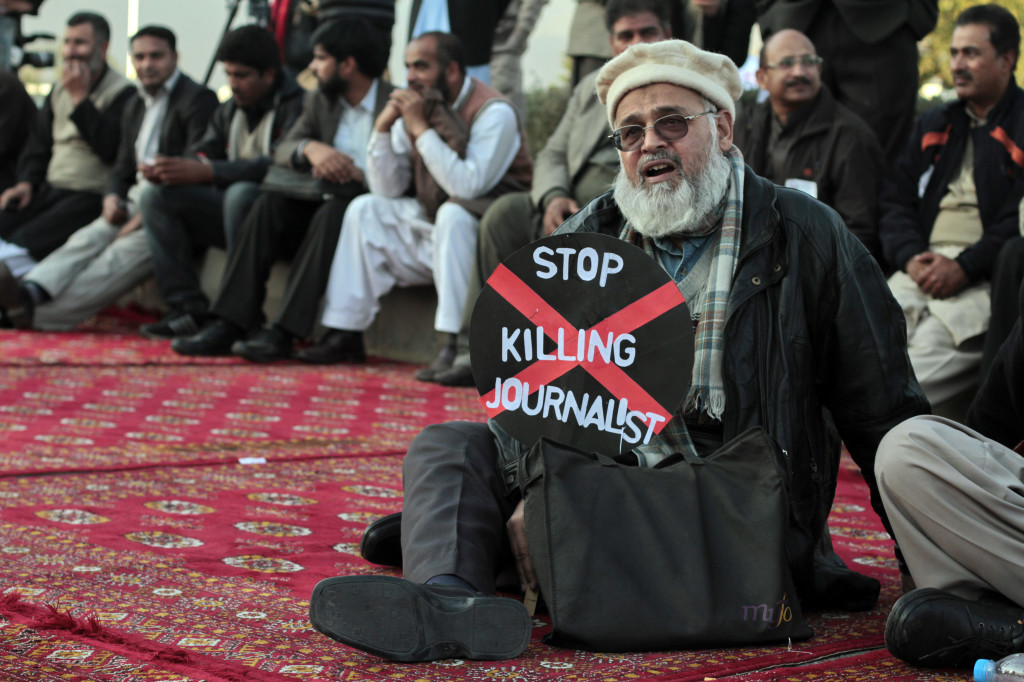

 A Dhaka court has sentenced a controversial newspaper editor to seven years “rigorous imprisonment” for “sedition.”
A Dhaka court has sentenced a controversial newspaper editor to seven years “rigorous imprisonment” for “sedition.”

 Amnesty International said in November, 2012, that it had “found a toxic mix of uncertainty, unlawful detention and inhumane conditions creating an increasingly volatile situation on Nauru, with the Australian Government spectacularly failing in its duty of care to asylum seekers.”
Amnesty International said in November, 2012, that it had “found a toxic mix of uncertainty, unlawful detention and inhumane conditions creating an increasingly volatile situation on Nauru, with the Australian Government spectacularly failing in its duty of care to asylum seekers.”
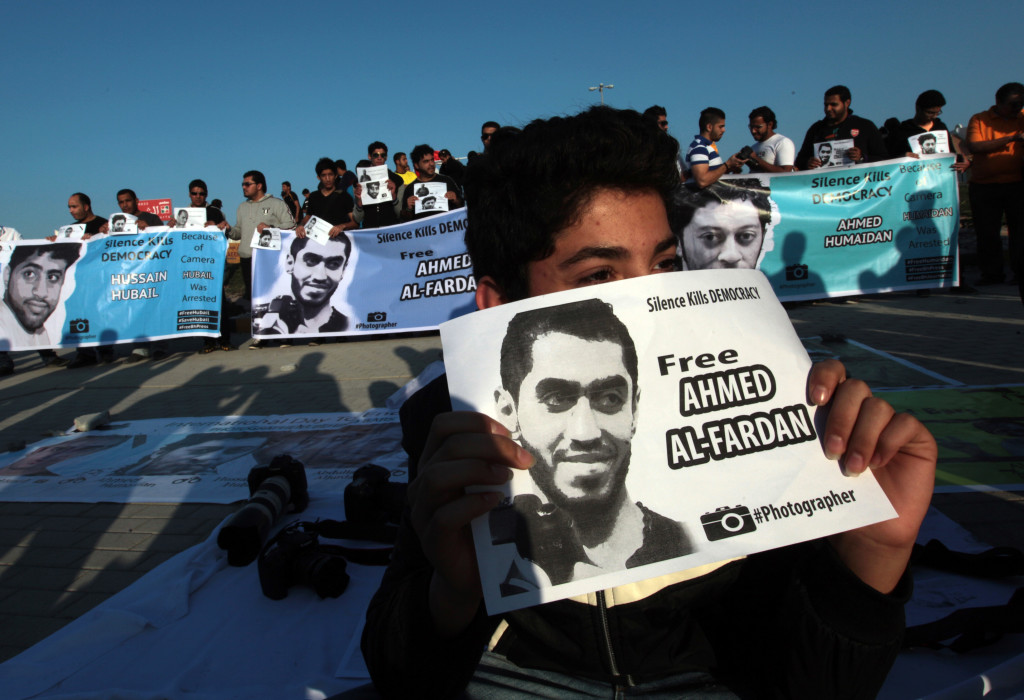
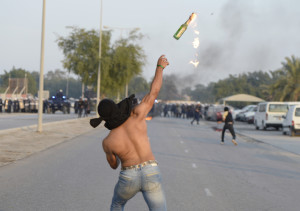
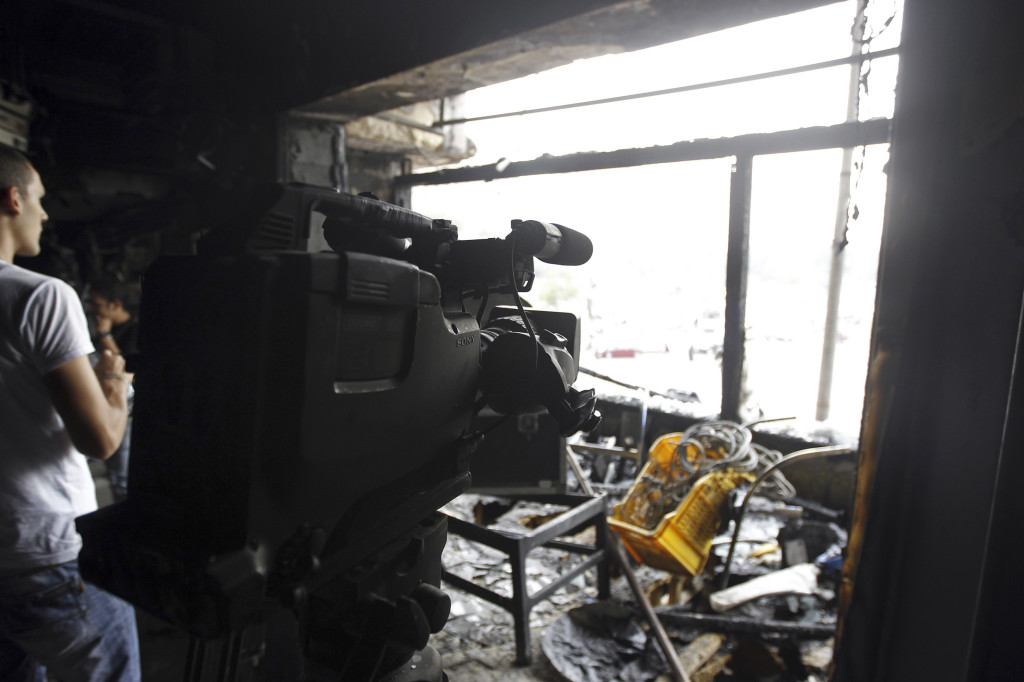
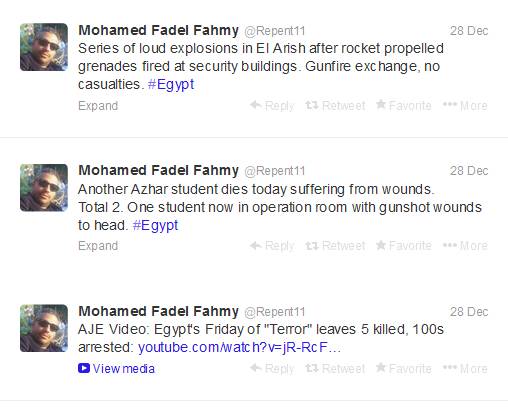 group. Fahmy’s family is now tweeting on his behalf.
group. Fahmy’s family is now tweeting on his behalf.